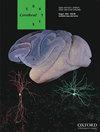游击队员利用可分离的神经系统处理基于政策和基于身份的信息。
IF 2.9
2区 医学
Q2 NEUROSCIENCES
引用次数: 0
摘要
政治党派通常被视为人们看待政治的一种视角。行为研究区分了两种 "党派透镜"--基于政策的透镜和基于身份的透镜--它们可能会影响人们对政治事件的看法。然而,人们对党派言论是通过什么机制在个人体内发挥作用的却知之甚少。为了解决这个问题,我们在参与者观看演讲者表达党派观点的视频时收集了神经成像数据。我们发现 "党派透镜效应 "是指每位参与者的大脑反应与其党派内群体和党派外群体的大脑反应之间的神经同步性差异。在处理基于政策的信息时,在社会政治推理和情感反应脑区观察到了党派透镜效应。在处理基于身份的负面攻击时,在思维和情感反应脑区观察到了党派透镜效应。这些数据表明,处理诉诸不同形式党派主义的政治言论时,会受到相关但可区分的神经机制--也就是心理机制--的支持,这可能会对我们如何描述党派主义和减轻其有害影响产生影响。本文章由计算机程序翻译,如有差异,请以英文原文为准。
Partisans process policy-based and identity-based messages using dissociable neural systems.
Political partisanship is often conceived as a lens through which people view politics. Behavioral research has distinguished two types of "partisan lenses"-policy-based and identity-based-that may influence peoples' perception of political events. Little is known, however, about the mechanisms through which partisan discourse appealing to policy beliefs or targeting partisan identities operate within individuals. We addressed this question by collecting neuroimaging data while participants watched videos of speakers expressing partisan views. A "partisan lens effect" was identified as the difference in neural synchrony between each participant's brain response and that of their partisan ingroup vs. outgroup. When processing policy-based messaging, a partisan lens effect was observed in socio-political reasoning and affective responding brain regions. When processing negative identity-based attacks, a partisan lens effect was observed in mentalizing and affective responding brain regions. These data suggest that the processing of political discourse that appeals to different forms of partisanship is supported by related but distinguishable neural-and therefore psychological-mechanisms, which may have implications for how we characterize partisanship and ameliorate its deleterious impacts.
求助全文
通过发布文献求助,成功后即可免费获取论文全文。
去求助
来源期刊

Cerebral cortex
医学-神经科学
CiteScore
6.30
自引率
8.10%
发文量
510
审稿时长
2 months
期刊介绍:
Cerebral Cortex publishes papers on the development, organization, plasticity, and function of the cerebral cortex, including the hippocampus. Studies with clear relevance to the cerebral cortex, such as the thalamocortical relationship or cortico-subcortical interactions, are also included.
The journal is multidisciplinary and covers the large variety of modern neurobiological and neuropsychological techniques, including anatomy, biochemistry, molecular neurobiology, electrophysiology, behavior, artificial intelligence, and theoretical modeling. In addition to research articles, special features such as brief reviews, book reviews, and commentaries are included.
 求助内容:
求助内容: 应助结果提醒方式:
应助结果提醒方式:


